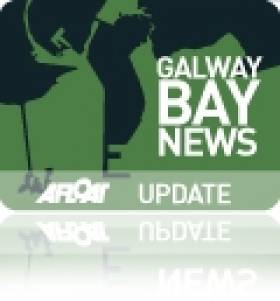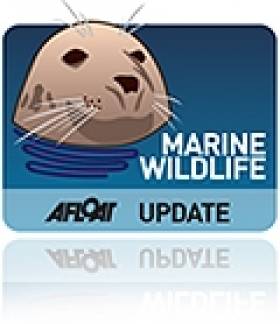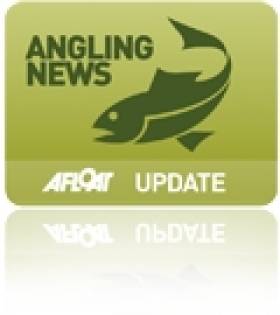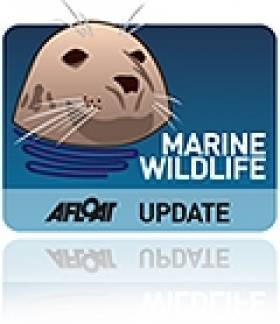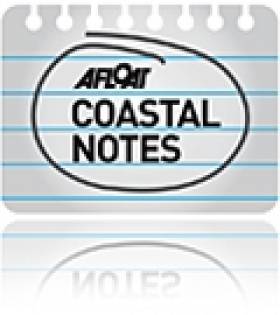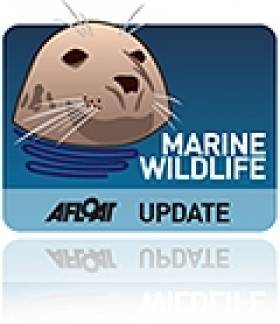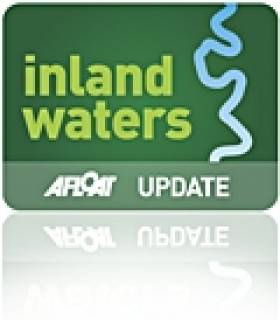Displaying items by tag: National Parks and Wildlife Service
Management Plan for Galway Bay Fisheries On Track
#GALWAY BAY - Galway Bay FM reports that the National Parks and Wildlife Service is to work with the Marine Institute towards completing a management plan for Galway Bay.
It comes two weeks after a group of oyster fishermen met Minister for Natural Resources Pat Rabbitte at Leinster House to voice their concerns over a cap on oyster dredging licences.
As previously reported on Afloat.ie, local fishermen in the inner Galway Bay-Clarinbridge area are concerned that their livelihoods are at risk after the European Union ruled that there is over-intensification of fishing at the oyster bed.
Only 13 dredging licences have been issued this year, and EU Directives prevent their further issue until a fisheries management plan is introduced.
Galway West Senator Fidelma Healy-Eames says steps are being made to get the management plan on track.
Concerns Over Seal Deaths in Donegal
Seven dead seals washed up in Donegal are believed to have died of natural causes - but concerns over a pattern of seal deaths nationwide remain.
As the Donegal Democrat reports, the seven grey seals - which are a protected species - were found beached along with a dead dolphin in the Rosberg area.
A ranger with the National Parks and Wildlife Service confirmed that none of the marine animals had been shot.
But Pauline Beades of the Irish Seal Sanctuary said the find was just one in a series of reports of "strange" seal deaths around the country.
“You don’t find three, four, five animals dead on a beach," she said. "I would be very concerned that this is not a normal occurrence.”
It is not yet known if a post-mortem will be carried out in the dead seals, but members of the public are encouraged to report any similar finds as the thocine distemper virus has been responsible for seal deaths in the past.
Beades said that grey seals are now having their young, and asked the public to keep an eye out for seal pups and report anything that looks suspicious in the area.
The Donegal Democrat has more on the story HERE.
Atlantic Salmon on 'Red List' of Endangered Species
Atlantic salmon have joined four other native fish on a 'red list' of endangered species compiled by the Ireland's fisheries and wildlife agencies.
As the Irish Independent reports, one third of the State's 15 native fish species are considered endangered or vulnerable.
One of the worst hit is the European eel, which was found to be critically endangered.
In a report published yesterday, a number of threats were highlighted such as water pollution, invasive species, overfishing, poor river management and climate change.
According to The Irish Times, the Red List was compiled by scientists from organisations across the island including Inland Fisheries Ireland, the National Parks and Wildlife Service, the Northern Ireland Environment Agency and the National Biodiversity Data Centre.
The news comes just a few days after Dublin celebrated the return of wild Atlantic salmon to the River Tolka after more than a century.
The Irish Times has more on the story HERE.
On the Trail of Fin Whales in West Cork
Ireland's Wildlife's Calvin Jones recently joined the Irish Whale and Dolphin Group on the trail of fin whales and other marine wildlife off the West Cork coast.
Following reports of sightings just off the coastline, IWDG researchers set off with group members and a ranger from the National Parks and Wildlife Service on chartered vessel the Holly Joe to confirm for themselves.
"It took a while for us to spot the characteristic blow, gracefully arching back and almost ludicrously small dorsal fin of our first fin whale," says Jones, who also notes that the calm conditions made spotting their telltale blows more difficult due to the lack of spray.
Jones continues: "This day the water was so clear that at one point, looking down from the roof of the Holly Joe, I could clearly see the whole whale – from the tip of its head to the impressive tail flukes. It was bigger than the boat by some margin: an awe inspiring sight."
Ireland's Wildlife has more on the story HERE.
Dirty Dunes a Danger Says Coastwatch
Coastwatch has claimed that a ministerial order for the protection of sand dunes in Co Wexford is being breached, The Irish Times reports.
The order was made in January by former environment minister John Gormley to protect the Tinnaberna dunes from damage due to the storage of cattle over a number of years.
But the environmental group says that "dung, contaminated sediment and massive weed cultures remain" on site, and highlighted concern over its close proximity to a stream which flows into the sea near bathing water.
However, the National Parks and Wildlife service said its ecologist is "happy" with progress made on clearing the dunes.
The Irish Times has more on the story HERE.
Kerry Fishermen Want Seal Cull
Kerry fishermen are calling for a cull of the local grey seal population over claims that they eat up to 10kg of fish a day, The Irish Times reports on marine animals.
Fishermen along the Kerry coast are arguing the the seals are "over-protected", are too great in number and are posing a threat to salmon conservation, as well as depleting stocks of hake and pollock.
Concerns are on the rise that seals will be culled illegally if there is no official intervention on the matter. However, the National Parks and Wildlife Service has ruled out any action.
Locals in the Blasket Islands have claimed that more than 1,200 seals inhabit the area. Research by the Seal Track programme showed only 400 seals in the Blaskets in 2003, down over 40% from 1998 numbers.
The Irish Times has more on the story HERE.
Grand Canal Dredging Begins This Month
Waterways Ireland has confirmed that further dredging of the Grand Canal in Dublin will commence this month and continue till the end of April on the inland waterway.
The canal will be closed to navigation from Lock C4 at Baggot Street to Lock 1 at Suir Road for the removal of sediment and rubbish between Mespil Road and Portobello Harbour, making the canal navigable for a large range of boats.
Traffic management plans have been agreed with Dublin City Council to keep disruption to a minimum, and discussions have taken place with the National Parks and Wildlife Service on measures to minimise the impact on sensitive habitats along the canal.



























